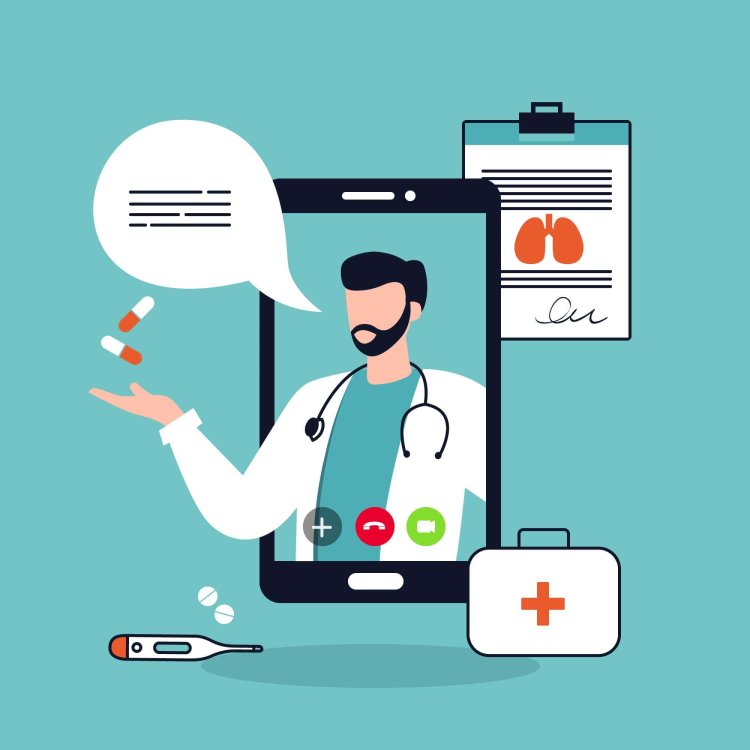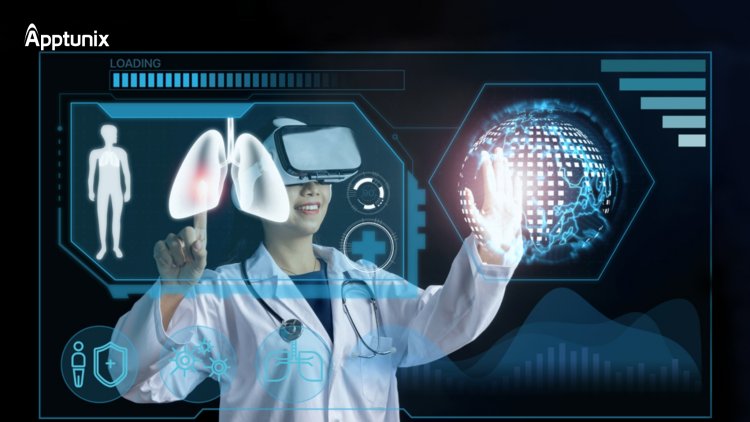The Future is Here: How AI is Changing Healthcare
The world of healthcare is undergoing a radical transformation, thanks in large part to artificial intelligence (AI).
As of today, AI is primarily utilized to increase speed and accuracy in the healthcare realm. Some of the current uses of AI in this field include: Diagnosing Patients: AI algorithms analyze medical imaging data, such as X-rays, MRIs, and CT scans, to assist healthcare professionals in accurate and swift diagnoses.
This isn't science fiction; it's happening now. AI technologies are beginning to impact every aspect of healthcare, making treatments more accessible, diagnoses more accurate, and patient care more personalized.
Examples of AI in Healthcare:-
HealthifyMe's digital health and wellness platform uses AI to help users lose weight, manage chronic diseases, and improve their overall health.
Robotics for their IT healthcare consulting needs. This AI trend highlights the growing popularity and acceptance of AI solutions in healthcare.
PharmEasy's AI-based app connects users with pharmacies and provides seamless medical deliveries.
SigTuple's AI platform helps pathologists and radiologists quickly and accurately identify diseases from medical images.
Tricog is also an AI Platform to empower healthcare providers with virtual cardiac diagnostic tools and services that help them in the accurate, timely, and consistent diagnosis of heart conditions.
Let's explore how AI is shaping the future of healthcare today.
Early Detection and Diagnosis
One of AI's most significant contributions to healthcare is its ability to detect diseases early and accurately. Machine learning algorithms can analyze millions of medical images, like X-rays and MRIs, to identify patterns and anomalies that might elude the human eye. This capability is particularly groundbreaking in the fight against cancer, where early detection can dramatically increase survival rates.
Personalized Treatment Plans
AI doesn't stop at diagnosis; it's also making treatments more personalized. By analyzing a patient's medical history, genetics, and lifestyle, AI algorithms can recommend the most effective treatment plans. This means patients can receive care tailored specifically to them, increasing the likelihood of successful outcomes and minimizing potential side effects.
Virtual Health Assistants
Imagine having a healthcare advisor available 24/7, ready to answer your questions, remind you to take your medication, and even monitor your symptoms. That's the promise of AI-powered virtual health assistants. These AI systems can provide personalized health advice and support, making healthcare more accessible, especially for people in remote areas or those unable to visit a doctor regularly.
Streamlining Healthcare Operations
AI is also making healthcare systems more efficient. From scheduling appointments to managing hospital bed availability, AI-driven tools are helping hospitals and clinics operate more smoothly. By predicting patient influxes and helping allocate resources more effectively, AI is enhancing the quality of care while reducing wait times and operational costs.
Revolutionizing Drug Development
Developing new medications is a time-consuming and costly process, but AI is poised to change that. By analyzing vast datasets, AI can identify potential drug candidates much faster than traditional methods. This accelerates the drug development process, bringing new treatments to patients faster and more efficiently.
The Ethical Dimension
With all these advancements, the ethical considerations of AI in healthcare are paramount. Issues such as patient privacy, data security, and the transparency of AI decision-making processes are critical concerns. Ensuring that AI is used responsibly and ethically is essential to its success and acceptance in healthcare.
The integration of AI into healthcare is no longer a distant future scenario; it's happening right now. From revolutionizing diagnostics to personalizing patient care and streamlining operations, AI is set to transform healthcare in ways we're just beginning to understand.
As we continue to navigate this exciting frontier, the focus must remain on harnessing AI's potential responsibly and ethically, ensuring it serves to enhance human health and well-being. The future of healthcare, powered by AI, is not just promising; it's already here, and it's bright.
What's Your Reaction?






















